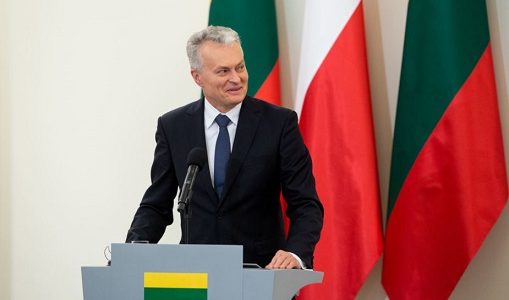Note: The Vilnius municipality held widely-announced public discussions with a panel of historians and political figures on the subject of renaming and removing streets and monuments honoring Holocaust perpetrators at least twice in the last four years as well as engaging the public and concerned communities in Lithuania and abroad in numerous other ways regarding this issue.
Press release from the President’s Communications Group
Tuesday, July 30, Vilnius. Recently decisions made by the Vilnius city municipality have caused public discussion and have shown again historical memory shouldn’t be question for just one city or municipality to decide.
Wishing to solve this problem comprehensively rather than exacerbating the opposition between social groups holding a different view, Lithuanian president Gitanas Nausėda invites institutions and experts to come together in discussions which would serve as the basis for the formulation of the principles and regulation of a national commemorative policy which responsible parties who make decisions about the determination of commemoration of historical events should follow.
The International Commission for the Assessment of the Crimes of the Nazi and Soviet Occupational Regimes in Lithuania which currently exists is doing important and useful work, but, as the current situation shows, it alone is not enough for a constructive solution to the problem. [Note: the Lithuanian president intentionally or unintentionally omits mention of the state-funded official Center for the Study of the Genocide and Resistance of the Residents of Lithuania and the Lithuanian History Institute here.] Therefore it is being proposed that more institutions and specialists be included in the discussion group: historians, political scientists and cultural heritage experts. Their productive cooperation would insure the directions of a national commemoration policy would be clearly defined.
“While such preparation of these kinds of principles is happening, I invite [the public] to adhere to a moratorium on exacerbating historical memory. At the same time [I invite the public] to pay more attention to the presentation of the historical context so that people may form an objective opinion [sic] in assessing different views, rather than [having] politicians decide what should be commemorated and what should be erased,” Nausėda said.
The President’s Office is prepared to serve as moderator in this process, bringing together institutions, engaging groups of experts and laying the groundwork for holding forums and events.


